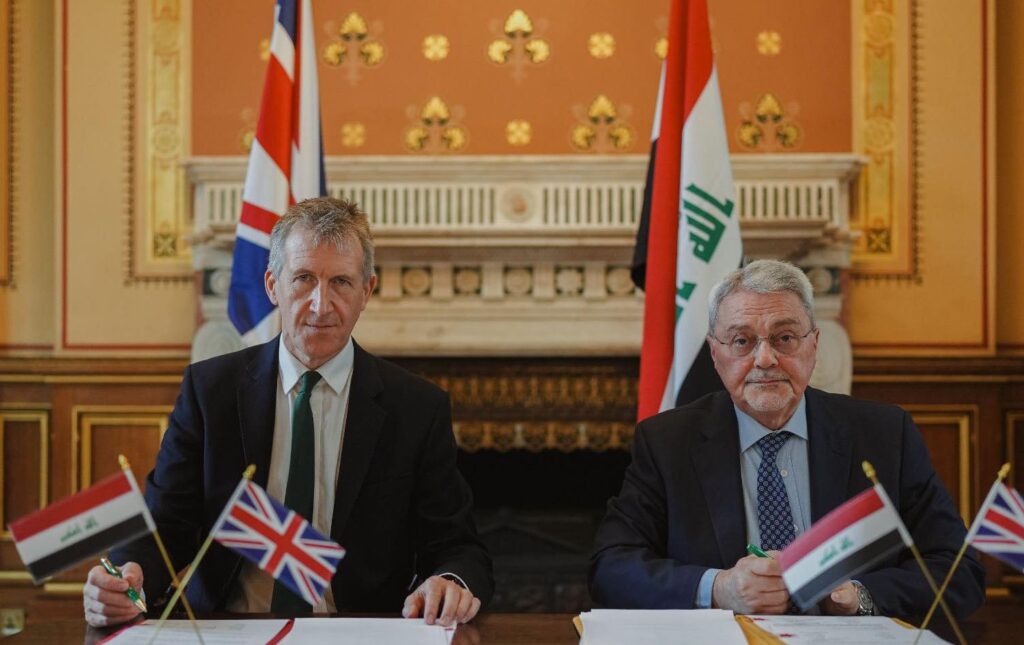The Iraq UK repatriation agreement marks a major step in tackling irregular migration and strengthening border security between the two countries. Signed in August 2025, the deal sets out clear rules for the return of Iraqi nationals who enter the United Kingdom illegally, particularly through dangerous Channel crossings.
This agreement is part of a broader effort by the UK government to tighten its migration system, reduce pressure on asylum services, and dismantle criminal networks that exploit migrants. For Iraq, it demonstrates its willingness to cooperate on global migration challenges while supporting its citizens who return home.
Background: The Challenge of Irregular Migration
Over the past few years, the UK has witnessed a surge in small boat crossings across the English Channel, with many migrants originating from Iraq. These crossings are often facilitated by organized criminal gangs that exploit vulnerable individuals seeking better prospects in the UK. The increasing number of such incidents has put immense pressure on the UK’s asylum system and border control mechanisms.
In response, the UK government has been actively seeking international partnerships to tackle this issue. The newly signed agreement with Iraq represents a pivotal step in this direction, aiming to curb the flow of illegal migrants and enhance bilateral cooperation on border security.
Key Provisions of the Iraq UK Repatriation Agreement
The agreement outlines several critical measures to address illegal migration:
- Swift Repatriation Processes: Establishing formal procedures to expedite the return of Iraqi nationals who have no legal right to remain in the UK.
- Enhanced Border Security Cooperation: Strengthening collaboration between UK and Iraqi authorities to combat people-smuggling operations and improve border control mechanisms.
- Reintegration Support: Providing assistance to returnees to facilitate their reintegration into Iraqi society, ensuring they have access to necessary services and support systems.
- Joint Efforts Against Organized Crime: Collaborating on intelligence sharing and joint operations to dismantle smuggling networks operating between Iraq and the UK.
Implications for UK Border Control and Migration Policy
The signing of this agreement signifies a strategic shift in the UK’s approach to managing illegal migration. By partnering directly with countries of origin, the UK aims to address the root causes of irregular migration and reduce reliance on temporary solutions.
Key implications include:
- Deterrence of Irregular Crossings: The prospect of swift repatriation may deter individuals from attempting dangerous crossings, knowing that they face prompt return if apprehended.
- Strengthened Diplomatic Relations: The agreement fosters closer ties between the UK and Iraq, paving the way for future collaborations on various issues beyond migration.
- Enhanced Border Security: Improved cooperation between UK and Iraqi authorities can lead to more effective monitoring and control of migration routes.

Reactions from Stakeholders
The agreement has garnered mixed reactions from various stakeholders:
- UK Government: Officials have expressed optimism, highlighting the deal’s potential to reduce illegal crossings and enhance border security.
- Iraqi Government: Iraqi authorities have welcomed the agreement, emphasizing their commitment to supporting returnees and combating people smuggling.
- Human Rights Organizations: Some groups have raised concerns about the treatment of returnees and the adequacy of reintegration support, urging both governments to ensure the protection of migrants’ rights.
Future Prospects and Challenges
While the Iraq UK repatriation agreement marks a significant step in addressing illegal migration, several challenges remain:
- Implementation of Reintegration Programs: Ensuring that returnees receive adequate support to reintegrate into Iraqi society is crucial for the success of the agreement.
- Monitoring and Evaluation: Both governments will need to establish mechanisms to monitor the effectiveness of the agreement and make necessary adjustments.
- Public Perception: Managing public opinion and addressing concerns about the treatment of migrants will be essential to maintain the legitimacy of the agreement.
Conclusion
The Iraq UK repatriation agreement represents a proactive approach to managing illegal migration by addressing both the symptoms and root causes. Through enhanced cooperation, swift repatriation processes, and comprehensive support for returnees, the UK and Iraq aim to create a more secure and orderly migration system. However, the success of this agreement will depend on effective implementation, ongoing collaboration, and a commitment to upholding the rights and dignity of all individuals involved.
Do follow us: Instagram
Read More: Top 10 AI Startups Transforming Bahrain’s Tech Landscape



